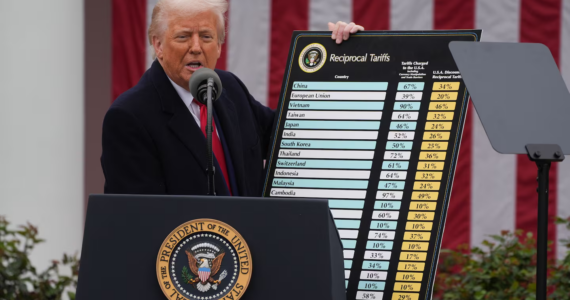America is back in a trade war, and this time, it’s hitting Mexico, Canada, and China. If you’ve noticed prices creeping up at the grocery store, your favorite sneaker brand costing more, or tech gadgets feeling like a luxury, you’re not imagining things. This tariff war is playing a major role in how much we pay for everyday items—and it’s time to break it all down.
What’s a Tariff War, and Why Is It Happening?
A tariff is basically a tax on imported goods. When the U.S. raises tariffs on products from Mexico, Canada, or China, it makes those goods more expensive to bring into the country. Companies that sell these products—like clothing brands, car manufacturers, and food suppliers—end up charging consumers more to make up for the extra cost.
So, why is this happening? The U.S. is trying to push for fairer trade deals and protect American industries, especially in manufacturing, agriculture, and technology. But instead of negotiating, they’re using tariffs as a power move to pressure other countries into playing by America’s rules.
Who Does It Hurt?
Let’s be real—tariffs might sound like a government problem, but they hit regular people the hardest. Here’s how:
? Consumers (That’s Us!) – Prices go up for cars, food, clothing, and electronics. If you love shopping for sneakers or grabbing fast food, expect to pay more.
? Small Businesses – Many businesses rely on affordable imported goods to keep prices low. Higher tariffs mean they have to charge more or risk losing customers.
? Farmers & Manufacturers – Other countries retaliate by putting tariffs on American goods, which makes it harder for U.S. farmers and factories to sell their products internationally. This means less income and more job losses.
What Can We Expect?
The longer this trade war lasts, the more we’ll feel it. Here’s what’s likely to happen:
? Prices will continue rising – Tariffs increase costs, and companies will pass that down to consumers. Expect higher grocery bills and pricier tech and clothing.
? Fewer product choices – If companies struggle with costs, they might cut back on production or stop importing certain products altogether.
? More economic uncertainty – Some industries, like automobiles and agriculture, could see job losses if they can’t sell their goods as easily.
What Can We Do?
Feeling the pinch in your wallet? Here’s how you can fight back:
✅ Shop Smart – Look for local or alternative brands that aren’t as affected by tariffs. Secondhand shopping and thrifting can also help you save.
✅ Support Small Businesses – They’re getting hit the hardest, so spending money at local shops and markets keeps them going.
✅ Stay Informed – Policies change all the time, and elections matter. If you care about lowering prices and fair trade, pay attention to who’s making these decisions and vote accordingly.
Final Thoughts: The Trade War Hits Home
Tariffs aren’t just government jargon—they affect our daily lives, wallets, and even job security. While politicians play power games, we’re the ones stuck paying the price. The best thing we can do is stay informed, adjust our spending, and keep the conversation going.
What are your thoughts on the tariff war? Have you noticed prices going up? Drop a comment and let’s talk about it!
? Follow MEFeater on Twitter, Instagram, Facebook, and Pinterest for more money, culture, and lifestyle updates! ?







